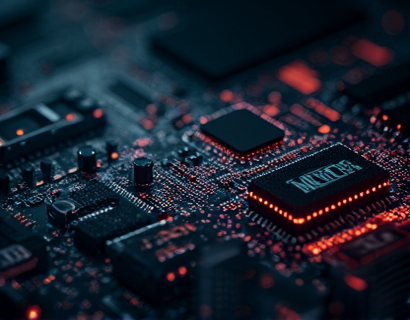Revolutionizing Online Memorials: The Synergy of AI and Blockchain
The intersection of artificial intelligence and blockchain technology is giving rise to transformative solutions in various sectors, including the creation and management of online memorials. This innovative fusion is redefining how we honor and remember our loved ones, offering secure, personalized, and lasting tributes. As bereaved families and individuals seek meaningful ways to commemorate their losses, a cutting-edge platform emerges, leveraging the power of AI and blockchain to craft unique and heartfelt memorials.
Understanding the Need for Advanced Memorial Solutions
The process of saying goodbye to a loved one is inherently emotional and complex. Traditional memorials, while meaningful, often fall short in providing a secure and personalized space for remembrance. The digital age has introduced online memorials, but these platforms frequently struggle with issues of security, personalization, and longevity. The integration of AI and blockchain addresses these challenges, offering a robust and empathetic solution for creating and maintaining digital tributes.
AI: Enhancing Personalization and Emotional Connection
Artificial intelligence plays a pivotal role in crafting personalized memorials. AI algorithms can analyze and understand the life, interests, and personality of the deceased, enabling the creation of a tribute that truly reflects their unique essence. This technology can curate photos, videos, and stories, arranging them in a way that tells a cohesive and touching narrative. AI also facilitates the generation of personalized messages and condolences, providing comfort to those who visit the memorial.
Moreover, AI can continuously learn and adapt, ensuring that the memorial remains relevant and up-to-date. It can incorporate new memories and updates from family and friends, keeping the tribute dynamic and alive. This ongoing personalization helps maintain a living connection to the deceased, offering solace and a sense of continuity to the bereaved.
Blockchain: Ensuring Security and Longevity
Blockchain technology is renowned for its security and immutability, making it an ideal partner for digital memorials. By storing memorial data on a blockchain, the platform ensures that the tribute is tamper-proof and resistant to cyber threats. Each update and interaction is recorded in a transparent and verifiable manner, providing peace of mind to those who rely on the memorial as a sacred space for remembrance.
Blockchain also addresses the issue of data longevity. Traditional online services often face the risk of data loss due to server failures or business discontinuation. In contrast, blockchain's decentralized nature ensures that the memorial remains accessible and intact for generations to come. This permanence is crucial for preserving the legacy of the deceased and providing a lasting resource for future generations.
Combining AI and Blockchain for Unparalleled Memorial Experiences
The true power of this technology duo is realized when AI and blockchain are combined. The AI-driven personalization ensures that each memorial is a unique reflection of the individual, while blockchain guarantees the security and longevity of this personalized space. Together, they create a platform that not only honors the memory of the deceased but also offers a supportive environment for the living to grieve, remember, and celebrate the life of their loved one.
The platform allows users to upload and manage various types of media, such as photos, videos, and written tributes. AI algorithms curate these contributions, creating a seamless and emotionally resonant experience. For instance, the platform can generate a slideshow of the deceased's favorite moments, set to music that they loved, all powered by AI's understanding of their preferences.
User-Centric Design and Accessibility
The platform is designed with the user in mind, ensuring an intuitive and accessible experience. Bereaved individuals and families can easily navigate the site, creating and customizing their memorials with minimal technical knowledge. The interface is user-friendly, guiding users through the process of adding content, managing settings, and sharing the memorial with others.
Accessibility is a key consideration, with the platform available on multiple devices, including smartphones and tablets. This ensures that users can access and update their memorials anytime, anywhere, providing a constant source of comfort and connection to their loved one.
Community and Support Features
Beyond personalization and security, the platform fosters a sense of community and support. Bereaved individuals often find solace in sharing their experiences and receiving comfort from others who have gone through similar losses. The platform includes forums and support groups where users can connect, share stories, and offer mutual support.
AI-driven matchmaking can also facilitate connections between users who share similar experiences or relationships to the deceased. This feature helps create a network of understanding and empathy, reducing the isolation often felt during the grieving process.
Privacy and Ethical Considerations
Privacy is a paramount concern in the creation and management of digital memorials. The platform employs robust encryption and access control mechanisms to ensure that only authorized individuals can view and interact with the memorial. Users have full control over who can access the tribute, whether it's private, visible to specific individuals, or shared publicly.
Ethical considerations are also at the forefront, with the platform adhering to strict guidelines to respect the memory and legacy of the deceased. AI algorithms are designed to maintain the integrity of the content, avoiding any inappropriate or insensitive curation. The platform also provides options for data export and deletion, giving users the autonomy to manage their digital legacy as they see fit.
Future Prospects and Innovations
The integration of AI and blockchain in digital memorials is just the beginning. Future innovations may include augmented reality (AR) features, allowing users to create virtual visits to the memorial. AR can bring the tribute to life, enabling users to interact with the tribute in a more immersive and engaging way.
Another potential development is the incorporation of smart contracts on the blockchain, automating certain aspects of memorial management, such as donations to charity in honor of the deceased or the distribution of digital assets. These features can add layers of functionality and meaning to the memorial experience.
Conclusion
The convergence of AI and blockchain technology is transforming the landscape of online memorials, offering a new standard in security, personalization, and longevity. This innovative approach not only honors the memory of the deceased but also provides a supportive and meaningful space for the bereaved. As this technology continues to evolve, it holds the promise of creating even more profound and impactful ways to remember and celebrate the lives of those we love.










































